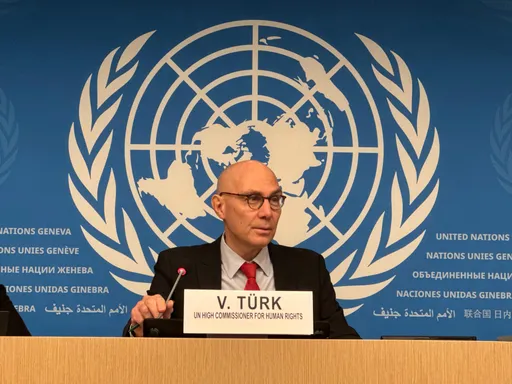The UN's highest court has ruled that a landmark case accusing military-ruled Myanmar of genocide against minority Rohingya Muslims can go ahead.
The International Court of Justice (ICJ) in The Hague on Friday threw out all of Myanmar's objections to a case filed by the west African nation of The Gambia in 2019.
The decision paves the way for full hearings at the court on allegations over a bloody 2017 crackdown on the Rohingya by Buddhist-majority Myanmar.
"The court finds that it has jurisdiction... to entertain the application filed by the Republic of the Gambia, and that the application is admissible," ICJ president Joan Donoghue said.
Gambian Justice Minister Dawda Jallow told reporters outside the court he was "very pleased that the court has delivered justice".
Several dozen Rohingya activists demonstrated outside the court while the judgment was read out.
READ MORE:Rohingya praise US for recognising their genocide in Myanmar
'Great moment for justice'
"This decision is a great moment for justice for Rohingya, and for all people of Burma," said Tun Khin, president of the Burmese Rohingya Organisation UK, referring to the country by its former name.
"We are pleased that this landmark genocide trial can now finally begin in earnest."
Myanmar's representative, attorney general Thida Oo, said her country was now "looking forward to finding the best way to protect our people and our country."
The Gambia filed the case in November 2019 alleging that Myanmar's treatment of the Rohingya breached the 1948 UN Genocide Convention.
Myanmar had argued on several grounds that the court had no jurisdiction in the matter, and should dismiss the case while it is still in its preliminary stages.
But judges unanimously rejected Myanmar's argument that Gambia was acting as a "proxy" of the 57-nation Organisation of Islamic Cooperation in the case.
Only states, and not organisations, are allowed to file cases at the ICJ, which has ruled on disputes between countries since just after World War II.
READ MORE: Myanmar's Rohingya sue Facebook for enabling 'genocide'
'Brutality and cruelty'
They also unanimously dismissed Myanmar's assertions that Gambia could not file the case because it was not a direct party to the alleged genocide, and that Myanmar had opted out of a relevant part of the genocide convention.
Finally they threw out by 15-1 Myanmar's claim that there was no formal dispute at the time Gambia filed the case, and that the court therefore had no jurisdiction.
Hundreds of thousands of minority Rohingya fled the southeast Asian country during the operation five years ago, bringing with them harrowing reports of murder, rape and arson.
Around 850,000 Rohingya are languishing in camps in neighbouring Bangladesh while another 600,000 Rohingya remain in Myanmar's southwestern Rakhine state.
READ MORE: US declares Myanmar military committed genocide against Rohingya Muslims























